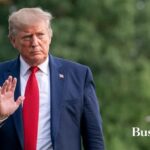In February, China liquidated USD 22.7 billion worth of US Treasury bills due to security concerns and the Federal Reserve’s anticipated delay in lowering interest rates. This occurred during China’s heightened geopolitical rivalry with Washington. As of the conclusion of that month, this puts its total holdings at USD 775 billion. Furthermore, with USD 3.2457 trillion in reserves, China now has the highest foreign exchange reserves globally.
China’s preferred method of investing its foreign exchange reserves has been US Treasury bills for many years. But Beijing has been increasingly diversifying its reserves in recent years due to the growing rivalry between Washington and Beijing. This indicates the Chinese government’s ability to reduce its holdings in the future, having previously focused on US Treasuries. Beijing has concerns about how the upcoming rate cuts in the US would impact profits.
Following a speech by Jerome Powell, the chairman of the Federal Reserve, many analysts are now projecting that the US standard rate reductions will be further delayed, with reductions not anticipated until September or possibly even into next year.
Beijing is cautious about defending its foreign assets. As a result, since the start of 2021, it has cut the amount of US Treasury bills it owns by 25% to USD 250 billion. In October 2023, its assets fell to USD 769.6 billion, a record low that is typically associated with a conscious effort to diversify.
Changes in foreign investment patterns are contingent upon several factors, such as the fact that Beijing has increased its holdings in gold, a reliable commodity. China’s efforts to diversify its holdings, meanwhile, are consistent with the country’s unpredictable relationship with the US and sudden shifts in geopolitics.
According to Alicia Garcia-Herrero, Chief economist for Natixis’ Asia-Pacific region, more sell-offs could occur. She went on to say that given China’s excess capacity and their serious intention of selling US Treasury bonds, the US will not back down from any situation.
Members of China-US delegates met in Washington on Tuesday to talk about financial stability, cross-border payments, regulatory cooperation, and money laundering prevention as part of the newly established bilateral financial working group.
Alicia Garcia-Herrero has pointed that the US “could minimize the sell-off” without “a major impact” because the collective holdings of Japan and the EU are larger than China’s.

Business Talk is a digital business magazine that caters to CEOs, Entrepreneurs, VC, and Corporates. While working with entrepreneurs and business executives, we focus not only on their achievements. Our mission is to shed light on business entities, including their innovations, technological benchmarks, USPs, and milestones/accolades.













